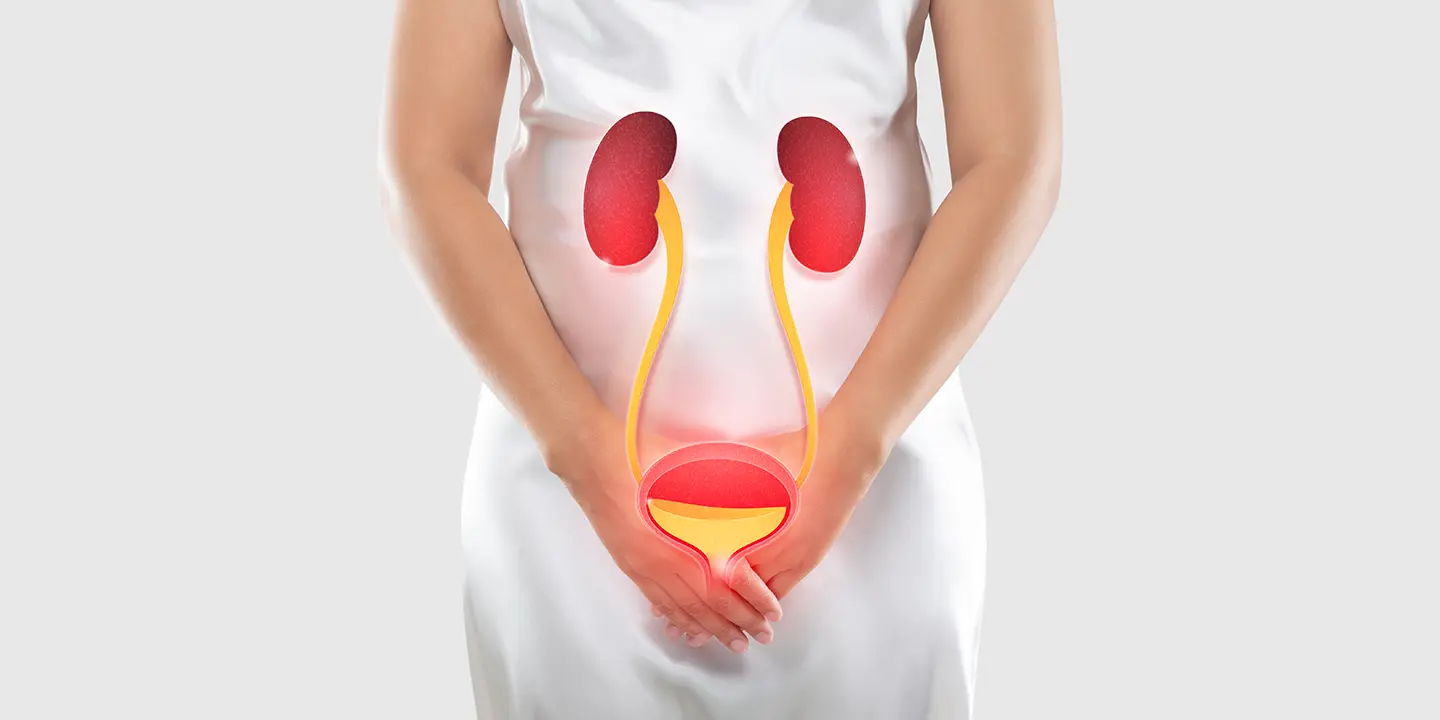
For millions of women worldwide, Polycystic Ovary Syndrome (PCOS) is a common hormonal disorder that can disrupt various aspects of their lives.
Beyond the well-known symptoms like irregular periods, weight gain, and fertility challenges, PCOS can also cast a shadow on one’s intimate life.
In this article, we delve into the intriguing link between PCOS and libido. We’ll also explore how this condition can affect sexual desire and, more importantly, what steps you can take to address these challenges.
In this Article
What is PCOS?
Polycystic Ovary Syndrome (PCOS) is a common hormonal disorder that affects people with ovaries, primarily women of reproductive age.
It’s characterized by an imbalance in sex hormones, particularly an excess of androgens (male hormones), leading to a variety of symptoms.
These may include irregular menstrual cycles, ovarian cysts, weight gain, acne, excessive hair growth, and fertility issues. PCOS can also impact other aspects of health, such as insulin resistance, which increases the risk of type 2 diabetes.
While the exact cause of PCOS remains unclear, early diagnosis and management can help alleviate its symptoms and reduce associated health risks.
Related Blog: PCOS Vs PCOD: What’s The Difference?
The Connection Between PCOS and Libido
Polycystic Ovary Syndrome (PCOS) can indeed affect one’s libido, or sexual desire, in various ways. PCOS disrupts the balance of sex hormones in the body, primarily by elevating androgen levels (often referred to as male hormones). This hormonal imbalance can lead to a range of physical and emotional changes that impact a woman’s interest in sexual activity.
Firstly, the physical symptoms of PCOS, such as irregular periods, weight gain, and excessive hair growth, can lead to reduced self-esteem and body image issues. These feelings of discomfort with one’s body can, in turn, affect sexual confidence and desire.
Furthermore, the hormonal fluctuations and insulin resistance associated with PCOS can result in mood swings, fatigue, and even depression. These emotional challenges can make it difficult to feel emotionally connected and interested in sexual intimacy.
In addition, PCOS-related pain, like pelvic discomfort or painful periods, can cause discomfort during sex, which can further reduce the desire for sexual activity.
Signs You Can’t Ignore
Here are some key signs of PCOS that you shouldn’t ignore, explained in simple points:
- Irregular Periods
If your menstrual cycles are often unpredictable, with missed or delayed periods, it could be a sign of PCOS.
- Excessive Hair Growth
Unwanted hair growth, especially on the face, chest, or back, known as hirsutism, may be an indication of PCOS.
- Acne and Oily Skin
PCOS can cause persistent acne and oily skin due to increased androgens (male hormones)
- Hair Thinning
Hair thinning or male-pattern baldness can affect women with PCOS.
- Weight Gain
Sudden and unexplained weight gain, especially around the abdomen, is a common symptom of PCOS.
- Difficulty Getting Pregnant
PCOS can lead to fertility issues, often due to irregular ovulation.
- Pelvic Pain
Some women with PCOS may experience pelvic pain, which can be a discomforting symptom.
- Mood Swings
Hormonal imbalances in PCOS can contribute to mood swings, anxiety, or depression.
- Insulin Resistance
High insulin levels and difficulty in managing blood sugar levels can be linked to PCOS.
- Dark Skin Patches
Skin discoloration, such as dark patches in neck folds or under the breasts, may occur in some cases.
How PCOS Impacts Women’s Sex Drive?
Polycystic Ovary Syndrome (PCOS) can impact a woman’s sex drive or libido in several ways.
- Hormonal Imbalance Disrupts Sexual Desire
PCOS leads to an imbalance in sex hormones, particularly elevated levels of androgens (male hormones) and lower levels of female hormones like estrogen. This hormonal disruption can affect sexual desire.
- Physical Symptoms Lead to Reduced Self-Esteem
The physical symptoms of PCOS, such as irregular periods, weight gain, and excessive hair growth, can lead to body image issues and reduced self-esteem, affecting a woman’s confidence and interest in sex.
- Mood Swings and Emotional Challenges
PCOS often comes with mood swings, anxiety, and even depression due to hormonal fluctuations. Emotional well-being is closely tied to sexual desire, so these challenges can reduce interest in intimacy.
- Pain and Discomfort Affect Sex Life
Some women with PCOS experience pelvic pain or painful periods, which can make sexual activity uncomfortable and less desirable.
- PCOS Medications Affect Libido
Medications commonly used to manage PCOS, like birth control pills, can affect libido in some individuals. It’s essential to discuss these potential side effects with a healthcare provider.
- Insulin Resistance Lead to Fatigue
PCOS is associated with insulin resistance, which can lead to fatigue and a lack of energy, affecting sexual desire.
- Impact on Fertility Can Lower Libido
PCOS can cause fertility issues, and the stress and anxiety related to difficulties in conceiving can also reduce libido.
Tips to Boost Libido in Women
Here are some tips to boost libido in women, including both medication and lifestyle changes, presented in points:
- Consult a Healthcare Provider
Seek guidance from a healthcare professional who specializes in PCOS. They can help identify potential underlying causes of low libido and recommend suitable treatments.
- Hormone Therapy
Discuss the option of hormone therapy with your healthcare provider, as it can help balance hormones and improve sexual desire.
- Prescription Medications
In cases of Hypoactive Sexual Desire Disorder (HSDD), consider medications like Addyi or Vyleesi, but only under the supervision of a healthcare provider.
- Stress Management
Practice stress-reduction techniques, such as meditation, yoga, or deep breathing exercises, to alleviate anxiety and stress, both of which can diminish sexual desire.
- Regular Exercise
Engage in regular physical activity to boost mood, increase energy, and enhance self-esteem, which can positively impact libido.
- Balanced Diet
Focus on a well-balanced diet rich in nutrients. Consider foods with antioxidants, omega-3 fatty acids, and zinc to support sexual health.
- Adequate Sleep
Prioritize good-quality sleep by maintaining a consistent sleep schedule. Aim for 7-9 hours of sleep per night.
- Communication
Openly discuss your feelings, desires, and concerns with your partner. Effective communication can improve intimacy and desire.
- Self-Care
Invest in self-care, focusing on activities that boost self-esteem, body image, and emotional well-being.
- Stop Alcohol and Substance Use
Excessive alcohol or drug use can impair libido. Moderation or elimination of these substances may help.
- Counseling or Sex Therapy
If emotional or relationship issues are contributing to low libido, consider seeking the guidance of a therapist or counselor with expertise in sexual health.
- Educational Resources
Explore educational resources such as books or courses on sexual health and intimacy to enhance your understanding and stimulate desire.
Related Blog: PCOS Diet Guide: What to Eat and Avoid
Advice from Experts
Experts advise that managing PCOS to improve libido involves a multifaceted approach.
First, seek a healthcare provider’s guidance to address PCOS-related hormonal imbalances and manage its symptoms.
Medications, including hormone therapy, may be considered. Emphasize a balanced lifestyle with regular exercise, a nutritious diet, and stress management to enhance overall well-being and mood.
Open communication with your partner is crucial to nurturing intimacy. If necessary, consult a sex therapist or counselor for guidance in overcoming emotional or relationship challenges.
Successfully managing PCOS, combined with these strategies, can contribute to a more fulfilling and satisfying sexual life.
How Queen’s Gynecology Can Assist You
Queen’s Gynecology offers comprehensive assistance to individuals dealing with PCOS (Polycystic Ovary Syndrome). Our specialized services can be a valuable resource in managing this condition.
Here’s how Queen’s Gynecology can help:
- Diagnosis and Assessment
Queen’s Gynecology provides accurate diagnosis by evaluating your symptoms medical history, and performing necessary tests.
- Personalized Treatment Plans
Our expert team tailors treatment plans to address your specific PCOS symptoms. This may include medication, hormone therapy, or lifestyle modifications.
- Fertility Support
Queen’s Gynecology offers fertility assessment and assistance for individuals with PCOS who are trying to conceive.
- Lifestyle Counseling
Our experts offer guidance on nutrition, exercise, and stress management to help you adopt a healthy lifestyle that can alleviate PCOS symptoms.
- Patient Education
Queen’s Gynecology ensures you understand your condition and treatment options, empowering you to make informed decisions about your healthcare.
- Ongoing Support
Continuous monitoring and follow-up appointments are provided to track progress and make necessary adjustments to your treatment plan.
Summary
PCOS is a common hormonal disorder in women that can affect sexual desire through hormonal imbalances, physical symptoms, mood swings, and more. However, the condition is manageable with the use of the right medication, diet, and lifestyle changes.
Queen’s Gynecology provides specialized care, offering a holistic approach to managing PCOS effectively. Our expertise lies in personalized treatment, and support can help individuals with PCOS lead healthier, more fulfilling lives.























































































































































































